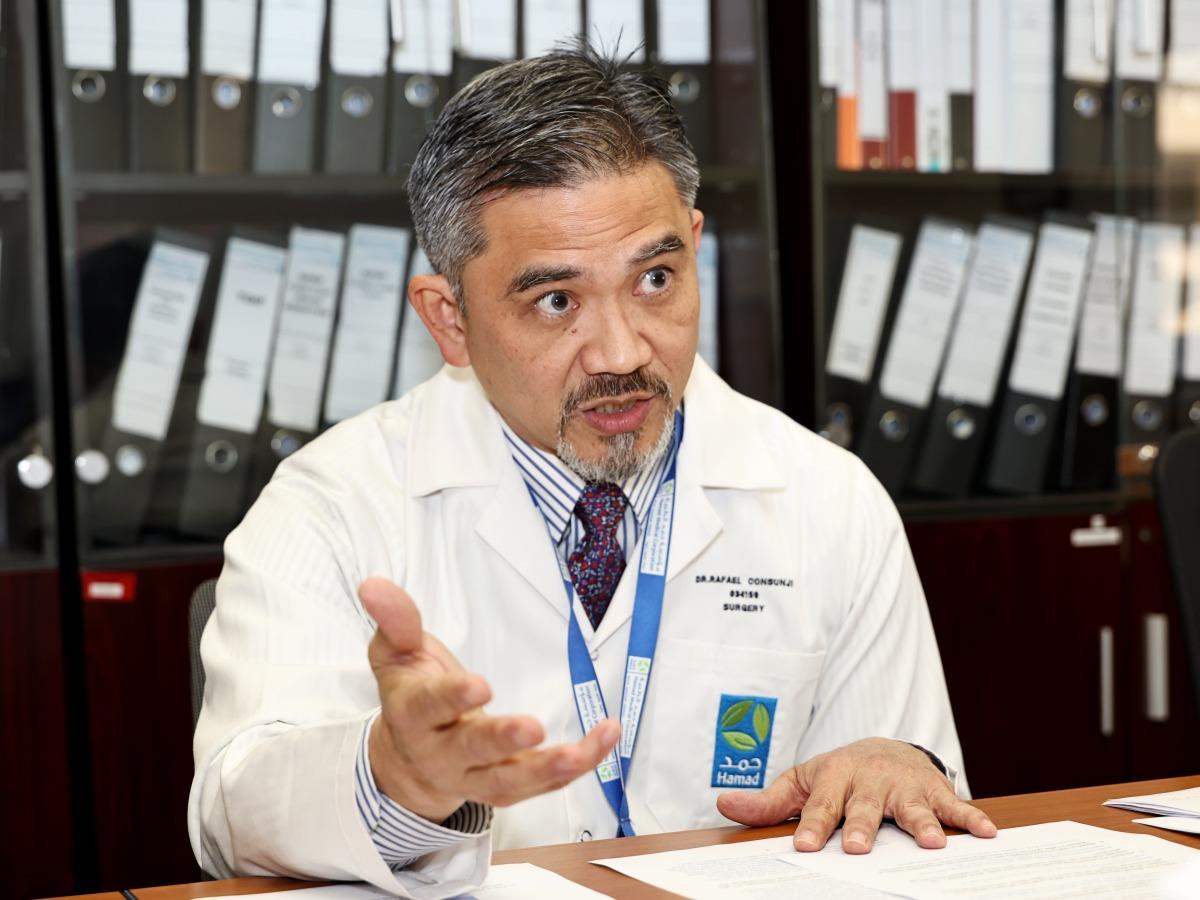
Hamad Trauma Centre Helps Reduce Road Traffic Injuries, Improves Trauma Care
Doha: The Hamad Trauma Centre at Hamad General Hospital, recently designated as the world's first and only World Health Organisation (WHO) Collaborating Centre for Trauma, continues to play a crucial role in reducing road traffic injuries and improving trauma care in Qatar.
In an interview with The Peninsula, Director of the Hamad Injury Prevention Program (HIPP) and Assistant Executive Director of Clinical Services, Trauma Surgery Section, Dr. Rafael J Consunji highlighted the centre's role as the hub of the national trauma system.
“The Trauma Centre is the hub of the national trauma system of Qatar,” Dr. Consunji said.“A very important component of this system is the national trauma registry. We collect data on at least 2,500 patients every year and analyse it to understand who is most affected and what the mechanisms of injury are.”
He explained that the registry helps identify high-risk groups, locations, and causes of injuries, enabling data-driven collaboration with authorities such as the Ministry of Public Health and the Ministry of Interior.
“We share this data with local authorities to improve safety measures,” he said.
Read Also-
Qatar Museums, National Museum of Qatar introduce NMoQ Metaverse Pilot Project
Health Ministry enhances early detection efforts for vision problems among school students
Ashghal continues implementation of remaining roads, infrastructure works in Al Mearad, Muaither Southwest
The registry, one of the most comprehensive in the region, collects thousands of data points per patient, providing precise insights that shape national safety strategies, law enforcement, and infrastructure planning.
Dr. Consunji said that Qatar's trauma system extends far beyond hospital care, encompassing prevention, rehabilitation, and education.
“We're a mature trauma system, not just a trauma centre,” he said.“Our system covers everything from our world class pre-hospital ambulance service, which averages only 18 minutes to transport patients to the hospital, to quality assurance and trauma rehabilitation.”
He said the WHO designation recognises Qatar's expertise and leadership in trauma systems development.
Through this collaboration, Qatar will help develop tools, research, and training programs to improve trauma systems globally. The centre has already hosted the Eastern Mediterranean Roundtable Meeting earlier this year and will hold another in January 2026.
Since 2018, the Hamad Trauma Centre has worked closely with the General Directorate of Traffic, producing measurable improvements in road safety.
“It all begins with data,” said Dr. Consunji.“For example, pedestrian safety has improved significantly, before, around 35% of traffic deaths were pedestrians; now, it's around 25%.” During the Decade of Action for Road Safety (2011–2020), Qatar achieved a 60% reduction in road fatalities, surpassing the WHO's global goal of 50%.
The decline in fatalities is attributed to the national road safety strategy, which aims, among other objectives, to reduce traffic deaths.
The Trauma Centre has also played a key role in addressing emerging risks, including the surge in traffic injuries among motorcycle delivery drivers after the COVID-19 pandemic.
“After COVID, motorcycle delivery injuries increased,” he said.“We worked with the traffic authorities and delivery companies to improve safety and, despite tripling the number of drivers, injuries dropped by 30%.”
He credited this success to improved training, stricter compliance with traffic safety laws, and new safety regulations, such as requiring delivery boxes to be securely fixed to bikes to improve motorcycle stability.
“We don't wait a year to analyse trends, we share data quickly with the authorities so they can act fast,” he added.
Looking ahead, Dr. Consunji emphasised the importance of anticipating new challenges on Qatar's roads, from e-scooters and cycling to autonomous vehicles.
“Our vision is to keep responding to emerging trends,” he said.“E-scooters, for instance, pose risks not just to users but also to motorists and pedestrians. We are tracking data and working with authorities to develop safer policies.”
He added that the WHO designation enables the Centre to share its experience and expertise with the world.
“Qatar has a lot to offer, not only in trauma but in rehabilitation, ambulance services, and disaster response,” he said.“We are already collaborating with trauma leaders from countries like Syria and may extend support to nations affected by conflict or disasters, such as Lebanon, Afghanistan, and Pakistan.” Concluding the interview, Dr. Consunji highlighted Qatar's collaborative spirit in global health and safety. “The WHO has the expertise, and we have ours,” he said.“Through collaboration, we can have a larger impact.”

Legal Disclaimer:
MENAFN provides the
information “as is” without warranty of any kind. We do not accept
any responsibility or liability for the accuracy, content, images,
videos, licenses, completeness, legality, or reliability of the information
contained in this article. If you have any complaints or copyright
issues related to this article, kindly contact the provider above.


















Comments
No comment